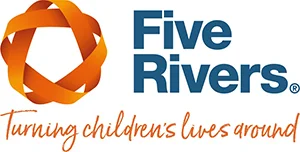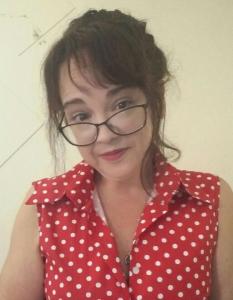Meet Sarah Stefano, (Former) Head of Residential Services
Monday 08 March 2021
Last updated: Wednesday 12 February 2025
To celebrate International Women’s Day, we spoke with our (Former)Head of Children’s Residential Services, Sarah Stefano, about women in leadership roles in the care sector, how Sarah came to be in her senior role, and her views on feminism.
Sarah Stefano, (Former)Head of Children’s Residential Services
What are your views on feminism?
I am very akin to Pam, Five Rivers’ CEO, about social injustice, and regard feminist theory from a point of equality. Women of all races, ability and qualifications struggle to get their voices heard but when disadvantage is there, that voice gets even more diluted. Feminist approach and methodology, in my view, should be about everyone immaterial of sex, gender, transgender, sexuality, sexual orientation, race, culture, ability which are the protected characteristics of the equality act (2010). It remains a point for me that society is still the problem in how it views and marginalises women and other groups. We must seek to change dated views and be gender blind and view the individual for their achievement, capacity to achieve and enable and empower not restrict.
Change takes a long time, it evolves, and feminism is often referred to or used as a weapon to make a point when this point would be better made for its own merit and worth.
What women in senior roles inspire you?
One of my keenest points from a woman in seniority is that kindness isn’t seen as a weakness. In our job, that’s a requirement for me, I believe that you can’t suddenly become cold and business-like when the heart and centre of your business are children. The children need to be at the centre of all that you do, whether you are the most junior support worker or the CEO. For Pam, the children are at the centre, and that’s my ethos as well.
I think sometimes in business when you do show a level of compassion as a woman, especially in this sector, it can be construed as weakness. Someone that I am inspired by is Jacinda Arden. She has encapsulated the ability to show human emotion not just as a woman, but as a person in seniority especially in government, and for that not to be a weakness. I think we, as a country, need to do the same thing.
What are your views of women working in the care sector?
In our sector, junior-level roles are predominantly filled by females. The majority of our residential homes are made up of at least 75 per cent female staff, and where that doesn’t happen, it’s celebrated. However, when you get to senior management levels, these roles are mainly filled by men. Most of the commissioners I speak to are men, and you’ll see a lot of men in social work and education. I’m proud to say that I am in a senior management role in the child care sector. I want to inspire other women to strive for senior roles. With social work, you can maintain your qualification and can diversify, so there is always a route back.
Can you tell us about how you came to be in a senior position within the care sector?
When I left school, I made the choice not to go to University straight away, because, at that time, I didn’t feel mature enough to do so. I worked in the family business, which was an off licence, and while I was there, I started studying at the Open University on a number of different courses related to social care. At the same time, I did some voluntary work in the adult sector working with the elderly and people with learning disabilities.
I initially came for an interview at Five Rivers when I was 21, and started as a Support Worker at Avon House. Avon House is one large house, but at the time it was two smaller houses, where we looked after 13 girls. I’ll never forget my first six months, I was so new to the sector and there was so much to learn, but I had a great belief that it was my purpose in life to help people.
Within three months I became a key worker, which is quite a significant term in child care. It is a time that I will remember with an enormous fondness and I’m proud to say that the child I looked after went on to become a solicitor later in life.
My journey with Five Rivers continued when I got my NVQ, I then went on to be a Deputy Manager. Three years later I took an opportunity outside of Five Rivers, but only for two years. I then took the Regional Manager post at Five Rivers, setting up a new side of the business, a crisis intervention service for children who would stay with us for 28 days at a time. It was an activity centre and I worked with a royal marine, he was on the adventure side, and I was on the care side. We had teams of staff working around the West Country and in the North East, working with children in crises. That part of that business moved into the solo services, and I became the Regional Manager for the South West of England.
I then embarked on my social work qualification in 2002, which Five Rivers sponsored me to do, which isn’t prevalent in our sector. Whilst doing my social work qualification I had to do two placements, each 100 days long, so I was away from the business for 100 days. My first placement was in Five Rivers and my second placement was working with asylum seekers in Plymouth. I ran a women’s group for refugees which is still running to this day. I really felt for these women who faced adversity in their own countries, but also in this country. I would teach and guide them, but also hear their stories so that I could support them to build their resilience as a woman of colour in this country. I still keep in touch now!
I qualified in 2006 as a social worker, and then my career in Five Rivers continued and I set up the learning and development department in 2008 for residential and became the National Learning and Development Manager. I started to develop training courses for residential staff which were relevant to what they were doing as opposed to a mandatory training agenda. I did this because I learnt on the job, and a lot of staff now are benefitting from real quality training. I then became Head of Children’s Residential Service in 2018.

